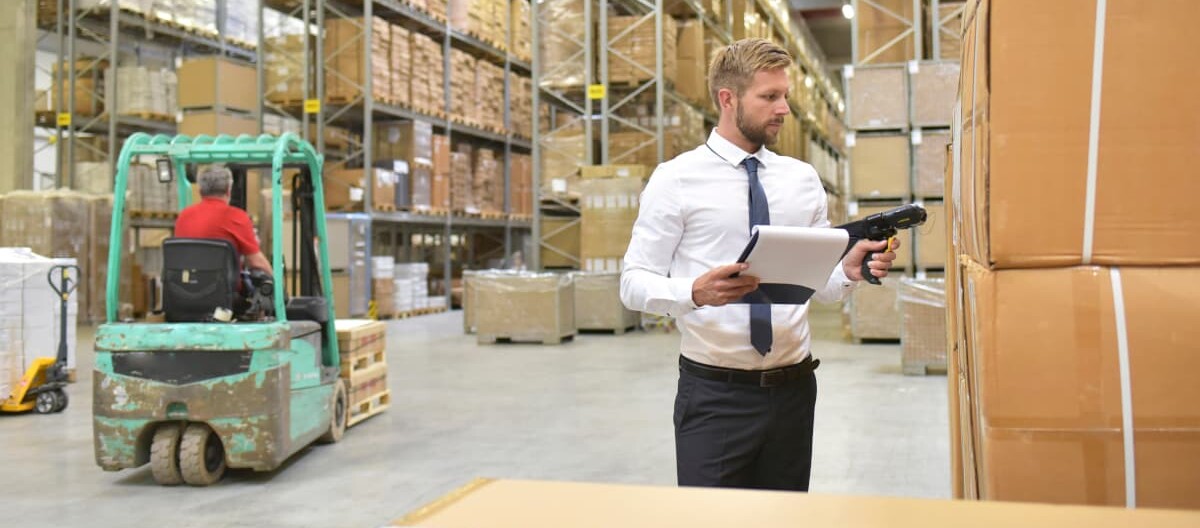Logistics: seeking skilled workers in several areas
Although the logistics sector experienced a challenging year in 2022 due to the global rise in energy prices, changing trade processes following the UK’s exit from the EU, and the need to decarbonise, statistics show that recovery is starting to be seen across the sector. However, due to the changing needs of businesses, the ageing population and the diminishing pool of workers from the EU, the industry is facing a skills shortage. In quarter 3 of 2022, 95% of employers said they faced problems in filling vacancies for mechanics, a figure unchanged from the previous quarter. Demand for warehouse staff has risen by over 40% since 2019, with recent data from the Office of National Statistics indicating that demand rose by 43.2% at the end of 2022, compared to pre-pandemic levels. This has led to employers offering a number of incentives to attract new recruits: salaries for entry-level warehousing jobs have risen between 20-30%. And courier companies are beginning to appreciate the value of employing their drivers as full-time staff, with all the attendant benefits, in order to improve staff retention and morale. So if you’re looking to work in the logistics sector, there are plenty of attractive opportunities.
Apprenticeships in logistics
There are several jobs in the traffic, logistics and transport sector which are open to those with vocational qualifications. The most popular include:
Warehouse clerk or warehouse logistics specialist
Among the main tasks of this role are the receipt, inspection and appropriate storage of goods. Warehouse logistics specialists and warehouse clerks are also responsible for monitoring inventory and shipping. They are familiar with customs regulations and other rules, and transport goods using forklifts and other equipment. Warehouse logistics specialists usually have more comprehensive training, so their tasks can also include the internal flow of information and materials, from procurement through to sales and ordering of goods. As purely operational tasks are increasingly becoming automated as a result of digitalisation, warehouse clerks are focusing more on technologies and modern, IT-based control processes. For roles such as warehouse workers or warehouse assistants - those responsible for the professional storage of all types of goods and for loading and unloading processes - no vocational training is required.

Professional drivers
In logistics, professional drivers usually drive HGVs, with or without cargo. They help with loading and unloading, and in securing the load. They check the cargo is complete and their vehicles are fully functional. Vocational training to operate other kinds of vehicles, such as barges or trains, also falls within the area of logistics.
Freight forwarding and logistics services sales agents
Freight forwarding agents are responsible for scheduling, i.e. the smooth flow of incoming and outgoing goods. This includes shipping, transshipment and sometimes also storage. They organise the supply chain and monitor the interaction of all parties involved. As well as assigning drivers, planning tours, advising and supporting customers, they are also called upon to undertake business tasks, such as price calculations and billing. Digitalisation also creates new areas of responsibility, such as digital supply chain management, platooning (where a human-driven vehicle leads a convoy of autonomous vehicles) or tracking and tracing systems.
Shipping agent
Shipping agents coordinate cargo ships and tankers, as well as planning and managing the transportation of goods on ships which travel between ports either on an occasional basis or according to a fixed timetable. Their responsibilities are acquiring and processing transport orders, handling vessels and acting as customer service advisors. They also check invoices and arrange payments. A distinction is drawn here between vocational training for scheduled shipping and “tramp shipping” (charter trips).
Other commercial training courses are available in the areas of rail and road transport, courier, express and postal services, air transport and traffic services.
Graduate careers in logistics
For some professions in the logistics area, or certain fields of activity within the professional spectrum, a degree is mandatory, or at least beneficial. These include:
- Economists for logistics, the automotive industry or traffic
- Engineers for industry, vehicle electronics, automotive technology, aerospace engineering, shipbuilding and marine technology, marine engineering or transportation
- Buyers in materials management
- Pilots and co-pilots
- Captains
- Fleet managers
- Traffic managers
- Teaching and research tasks
- Navigators
- Supply chain managers
- Logistics managers
- IT specialists in logistics
- SAP logistics consultants
In addition to business administration and engineering courses, subject-specific courses of study are also available, including logistics management, supply chain management, transport management, transport logistics, information logistics, computer science or business informatics.

